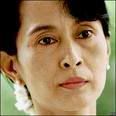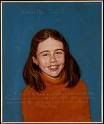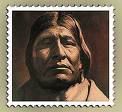Today I’d like to write about peacemakers – who are they and what do they do? And no, not the kind that try to avoid conflict – but the kind that take on the war machine and attempts by the powerful to marginalize whole groups of people. The more I look into this, the more I see that there are peacemakers of all kinds who find their own various paths to peacemaking.
A few months ago I found a wonderful site that many of you might know of already, peaceCENTER. They have a list of peace heroes with short bios about their contributions to the world. I know you could never do an exhaustive list of peacemakers, but this one inspired me in all its wonderful history and diversity. Of course it includes the names of those we cherish in this work, like Martin Luther King, Jr., Mahatma Gandhi, Cesar Chavez, Bishop Oscar Romero, Henry David Thoreau, Bishop Desmond Tutu and The Dalai Lama. But how about some of these names?

Mildred Norman – otherwise known as “Peace Pilgrim.” Starting during the Korean War in 1953, she walked across the US for 28 years spreading the message of peace.

Dorothy Day – founder of the Catholic Worker Movement in the 1930’s.

Aung San Suu Kyi – winner of the Nobel Peace Prize in 1991 for her work to bring democracy to Burma.

Sister Helen Prejean – advocate for those on death row in this country and author of “Dead Man Walking.”

Samantha Smith – 10 year old from Maine who wrote a letter to Yuri Andropov asking for peace that was published in Pravda. She travelled to Russia and became a media sensation before her untimely death at the age of 13.

Tom Slick – born in 1916, he was a San Antonio oil millionaire who used his fortune to further scientific research and peace throughout the world.

Chief Sealth – environmentalist circa 1851 who said “Revenge by young men is considered gain, even at the cost of their own lives, but old men who stay at home in times of war and mothers who have sons to lose, know better.”

Jeanette Rankin – the first woman ever elected to Congress in 1917 three years before women had the right to vote. She voted against President Wilson’s war resolution and lost her re-election bid. She was again elected to Congress in 1940 on a peace platform and was the only member to vote “no” to the US entering WWII.

Gordon Hirabayashi – refused Japanese internment during WWII, turned himself in to the FBI and lost his legal case at the Supreme Court.

Emma Tenayuca – labor organizer in San Antonio in the 1930’s who lead 6,000-8,000 pecan shellers (mostly women) in a strike that lasted for several months.
To their list, I’d like to add three modern-day women who all have the distinction of having won the Nobel Peace Prize:

Shirin Ebadi – an Iranian lawyer who won the prize for her significant and pioneering efforts for democracy and human rights, especially women’s and children’s rights. She is the first Iranian and the first Mulsim woman to receive the prize.

Wangari Maathai – founder of the Greenbelt Movement that has planted over 1 billion trees in Kenya and other countries in Africa. In 2004 she became the first African woman to receive the Nobel Peace Prize for “her contribution to sustainable development, democracy and peace.”

Rigoberta Menchu – winner of the 1992 Nobel Peace Prize, she has dedicated her life to publicizing the plight of Guatemala’s indigenous peoples during and after the Guatemalan Civil War (1960-1996), and to promoting indigenous rights in the country.
Labor organizers, social workers, nuns, millionaires, 10 year old girls, tree-planters, lawyers, chiefs and even politicians (although not the kind who can expect to get re-elected). This just reinforced my belief that you can be a peacemaker no matter where you find yourself in life, and no matter what cause of justice becomes your passion.
I don’t know what motivated, inspired and sustained all these people. But I have a hunch they all lived with hope, even in the face of despair. These words by Rubem Alves (author and theologian) seem to me to be a bedrock for any peacemaker.
What is hope?… It is the hunch that the overwhelming brutality of facts that oppress and repress us is not the last word. It is the suspicion that reality is more complex than the realists want us to believe – that the frontiers of the possible are not determined by the limits of the actual…
So let us plant dates – even though we who plant them will never eat them.
We must live by the love of what we will never see. That is the secret discipline.
It is the refusal to let our creative act be dissolved by our need for immediate sense experience and it is a struggled commitment to the future of our grandchildren.
Such disciplined hope is what has given prophets, revolutionaries and saints, the courage to die for the future they envisage. They make their own bodies the seed of their highest hopes.
I’ll leave you with the words of another peacemaker, Maya Angelou, as she tells us “A Brave And Startling Truth.”

32 comments
Skip to comment form
Author
have a peacemaker to add to the list? Or a favorite peace quote? I’d love to hear.
how people like this can go on and on and on…..never seeming to get discouraged let alone give up. I think there are a certain percentage of human beings always doing the best they can to promote peace and understanding….but it is always SO small….I hope we as a planet and a can find ways to increase that percentage and to give these folks (especially the non-famous ones, who nonetheless work always to improve the world) an increasing voice among the madness. And that someday….working for peace will be the norm, not the exception.
Emily Dickinson
http://nobelprize.org/nobel_pr…
Thanks, NL.
these folks are my sheroes and heroes…..
Please add our Valtin.
Author
who haven’t seen it and have an hour, I’d highly recommend watching this video about Peace Pilgrim. Click on the link and scroll down a bit for the video. I watched it again last night – and it inspired me in more ways that I can explain.
…an ordinary man (a shopper) doing an ordinary thing (shopping), brought me a great deal of hope and peace. I was SO frustrated at not being able to reach at least the 10th item I needed that was out of my reach from my seated position. He simply stepped up and quietly said, “Can I get that for you?” That’s it, yet when he handed me that jar, along with a warm smile, I felt tears very near.
Those two seconds of kindness reminded me that the world is still full of compassionate, caring people, and that reminder brought me a measure of peace that I could and I did, pass along that day.
Without taking one thing away from all the incredible people on this list who were so tremendously courageous, I’d like to add the endless millions of ordinary folk, who often, without realizing it, spread tiny droplets of peace wherever they go.
Or Barbara Lee. Both have stood against war for a long time with courage in congress. And in some ways that’s were it matters most.